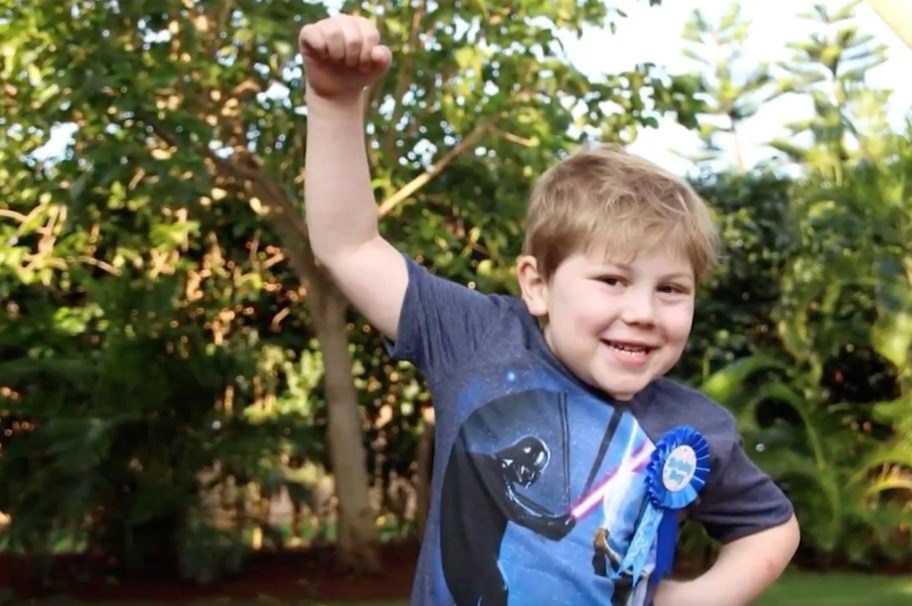Oxford Dictionaries says a six-year-old Victoria boy is on his way to getting his new word added to its Oxford English Dictionary.
Levi Budd, a Grade 2 student at St. Michaels University School, coined “levidrome” to describe a word that forms another when spelled backward, like pool and loop, or spit and tips. With media and celebrity attention, the word has been gaining attention.
In a video posted Thursday by the Oxford Dictionaries team in Oxford, England, Rebecca Juganaru, senior assistant editor for Oxford Dictionaries, tells Levi: “Lots of people know your word and they know what it means, which means levidrome is well on its way into our dictionary. After only five weeks, that’s really impressive.”
“It’s such a positive story for so many,” said Levi’s father, Robert Budd. “The reward is that so many people are now engaging with language and isn’t it lovely that it all started with an observation from a six-year-old boy asking ‘what do we call that.’ And that’s what being a kid is all about — making sense of the world around you.”
Oxford took note of media coverage given to Levi’s new word, as well as a personal request and tweet by Canadian actor William Shatner, who played Capt. James T. Kirk in the Star Trek series, to add the word to its dictionary.
The word levidrome needs to evolve into ordinary usage, Oxford says. School children in B.C. and Ontario have already started doing that, according to the boy’s father.
“Then all we do is wait and hope people keep using your word,” Juganaru says in the video. “We have a list of all the words we want to keep an eye on and levidrome is on that list.
“In a year or so, if lots of people are still using your word, it might well get into our dictionary.”
Budd, an oral historian, had originally proposed the word to dictionary publisher Merriam-Webster.
Told the word had to be in regular use, the family created a video explaining the word and its origin and posted it to YouTube.
Levidrome has already been added to the crowd-sourced online Urban Dictionary, which began in 1999 as a dictionary of slang words and phrases. On Wednesday, it was included in Merriam-Webster’s online “open dictionary” of new words and slang.
A palindrome describes a word that can be spelled backwards or forwards, such as noon, civic or radar. The word emordnilap — palindrome backward — is in competition with levidrome, as it has been long suggested to describe words that spell a different word backwards, but it does not appear in the Oxford or Merriam-Webster dictionaries.
Robert Budd said he and his wife believe in getting involved in their children’s interests. “If your kid loves Pokémon, learn everything you can about Pokémon.”
Budd said the popularity of his son’s story is likely based in a few simple themes about childhood curiosity and wonder, a love of literature and words, and how an idea can grow.
“Levi is every kid. Every kid is asking questioning the world around them,” said Budd. “It just so happens in this case, he really loves language … and asked a question that couldn’t be answered, so he answered it, and named a word after himself — what else would a six-year-old do.”



